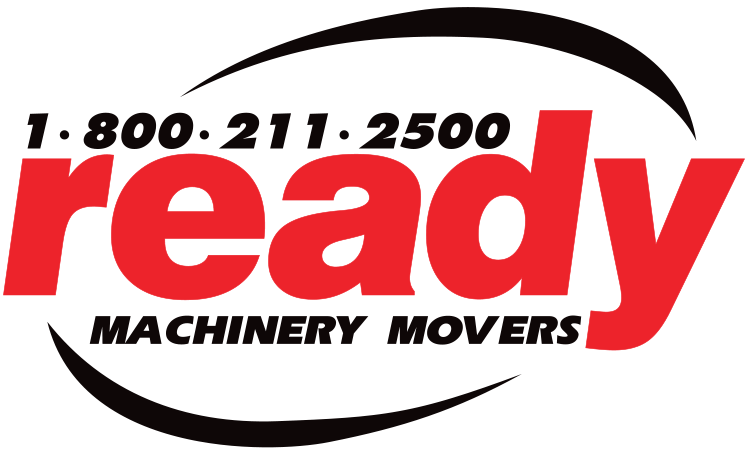Dealing with industrial equipment when it reaches its end of life is not among the top priorities of a company. Large and unwieldy, it can be challenging to relocate or transport them to another location, much more to dispose of them. Often, they end up at the back of the warehouse — out of sight and out of mind.
Before deciding to dispose of heavy machinery, it may be advisable to attempt to repair it first. Do a cost analysis to determine whether installing new equipment or keeping the old one is more cost-effective. Ascertain the hourly cost of running the older machinery versus the new one. Assess what the company needs. If the benefits outweigh the cost, repairing it may be the way to go. If your old industrial machinery is broken beyond repair and can neither be sold nor traded, below are a few ideas to help you figure out what to do:

- Donate it
Donating old equipment to charity may not be the best solution, but it does have a few perks. One is that if the donation is made to an eligible 5organization, the value of the contribution is tax deductible. For example, if you run a medical facility that needs to get rid of diagnostic imaging equipment, you can send it to a non-profit medical organization or a disaster area with victims needing medical assistance.
Additionally, this may be the fastest way to dispose of equipment, especially if one that is widely used, like a forklift. However, it may be difficult to find another facility to accept industry-specific items like a used printing press or a die-cutting machine.
- Direct selling
Direct selling can get you better returns at minimal risk. However, the challenge lies with finding potential buyers. It requires a significant amount of time and effort to reach the right market, and even if you do, it may be constrained to the local or provincial area. Prospective buyers will need to visit your facility to examine the unit. Those in charge of disposal will have to take time off their regular duties to accommodate buyers and assume the role of salespeople. Eventually, you will find a buyer who will take the unit off your hands for the right price.

- Put it up for auction
Auctions are an excellent alternative to direct selling and may be the ideal platform for disposing of in-demand units. You have the option to put it up for grabs online through third-party sites.
Unlike direct selling, auctioning used equipment online requires less effort while giving you a wider reach. The bidding site has access to a more extensive list of potential buyers. This can increase demand and the likelihood of selling the item quickly at a reasonable price. You can also put up multiple items for sale at once. Finally, depending on the auction site you choose, you don’t have to pay a substantial fee compared to hiring a broker.

- Take it to an equipment broker
Equipment brokers offer another means of disposing of used machinery. This method is one built on trust and the seller’s relationship with the broker.
Brokers have an extensive network that may include overseas contacts and can connect the seller to the right buyer. Often, when a broker visits a facility to take a look at the equipment, they may already have a buyer who is ready to purchase that specific model. Brokers can also net better profits than an auction and can be especially useful when the bids do not reach a set benchmark.
Unfortunately, the increasing availability of new (and more advanced) equipment has reduced the demand for used equipment. Equipment brokers are no longer as common as they used to be.

- Trade it in for a new one
Another option is a trade-in. Trade-ins are a fast and convenient way to dispose of machinery. The process allows companies to turn their equipment over to a dealer without first having to prepare the machine for sale, market it, and handle the final transaction with third-party buyers. There is also some added flexibility since the seller can choose to trade one or more units at a time.
One other advantage is that the relationship between the seller and the dealer means that the dealer knows the equipment and has historical records (including details on maintenance performed and frequency of servicing). This can increase the likelihood of getting a higher value. However, (historical records or not) there is still the likelihood of the seller not receiving the equipment’s actual value — especially if they know very little of the demand and the market.
At trade-ins, equipment is evaluated and compared to similar machinery before a value is set. The cost of the machine is determined by factors including appearance, age, application, attachments and inclusions, operational condition, usage, tire and undercarriage wear, and maintenance records.

- Recycle it, or send it to a recycling centre
Scrapping industrial equipment or taking it to a recycling centre is better than discarding it. Although recycling equipment will not net you a substantial amount of money, it’s better than leaving it to sit in storage indefinitely without receiving any profit at all. Additionally, by recycling, you divert equipment from going into landfills, helping the environment in the process.
Recycling centres accept various types of equipment. The most common include (but are not limited to) forklifts, shipping containers, tractors, sorting equipment, laser cutting machines, printing presses, and packaging machines.
Canada is home to a variety of recycling centres. These facilities have designated drop-off locations to which companies can transport their items. It will undergo a stringent process that may involve sorting component materials and data destruction (a necessary step, depending on the equipment, to ensure the safety and security of private information). Check with the nearest facility regarding their procedure.
Getting rid of heavy equipment may be a challenge, but finding the right transportation doesn’t have to be. Ready Machinery specializes in transporting heavy equipment to any location in the Greater Toronto Area — whether to a recycling centre, a buyer’s site, or a staging site or holding facility.
No matter how you choose to dispose of redundant machinery, we will take it off of your property, put it onto a truck, and haul it to your chosen destination. Call us at 1-800-211-2500.
